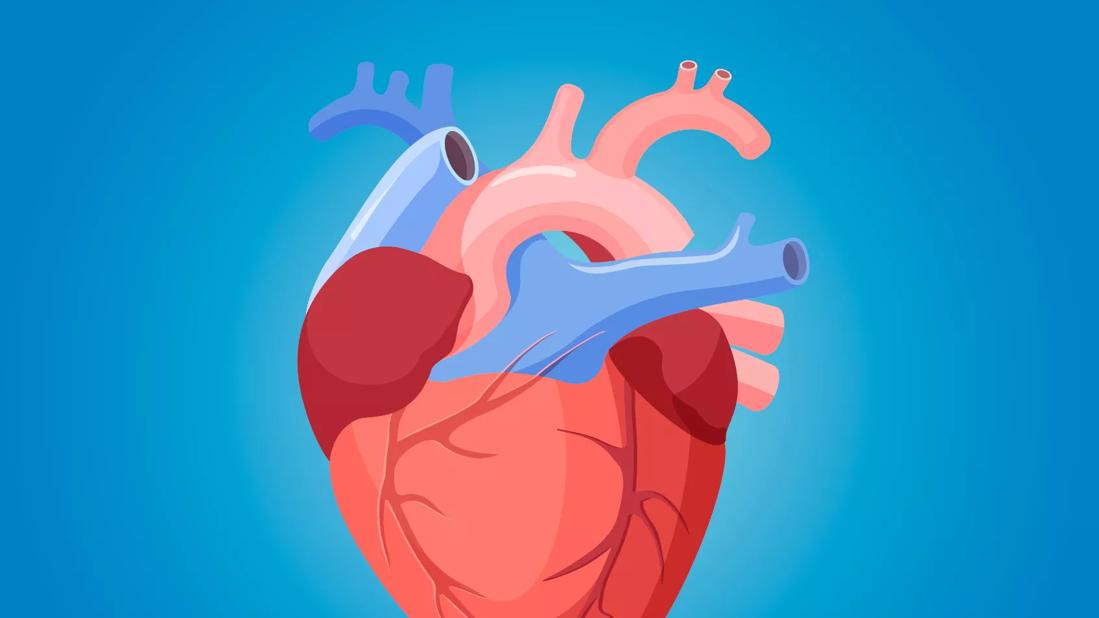Unlock the secret of your body’s hardest-working organ

Image content: This image is available to view online.
View image online (https://assets.clevelandclinic.org/transform/3716a782-a85c-42b6-90f2-61576c1595d0/HeartMuscle-625147262-770x533-1_jpg)
anatomical illustration of a heart against a blue background
Conventional wisdom suggests that if you want something to last longer, you should go easy on it. And most of the time, that’s sage advice. But not when it comes to your body’s hardest-working organ: your heart.
Advertisement
Cleveland Clinic is a non-profit academic medical center. Advertising on our site helps support our mission. We do not endorse non-Cleveland Clinic products or services. Policy
Each day, your heart beats, on average, 100,000 times, pumping your blood through a vast system of blood vessels that’s more than 60,000 miles long.
But making your heart work even harder — through moderate- to high-intensity physical activity on a consistent basis — can help lower your blood pressure and make your heart stronger, says cardiologist Leslie Cho, MD.
Your heart is a muscle. Just like your bicep, the more you work your heart, the bigger and stronger it gets.
During moderate- to high-intensity exercise, your muscles and tissues demand more nutrients and oxygen, which means that your heart must work harder and pump faster to meet those needs, says Dr. Cho.
Over time, your heart works more efficiently and can push out a greater volume of blood with every beat.
In addition, exercise also improves blood flow to your heart. It does this by improving the ability of your coronary blood vessels, which are the arteries that supply blood to your heart, to dilate.
Exercise also helps your other blood vessels’ ability to dilate, which, over time, lowers blood pressure.
“In general, the lower your blood pressure is, the better off you are,” Dr. Cho says. High blood pressure is a major risk factor for heart and blood vessel disease.
Advertisement
Consistent moderate physical activity has other benefits, too:
“As a secondary benefit, consistent exercise can help you lose weight, which means your heart doesn’t have to work as hard since there is less of you to pump blood to,” Dr. Cho says.
Dr. Cho shares these additional tips to help keep your blood pressure in check and keep your heart strong:
When you combine healthy habits like regular exercise, a balanced diet, the elimination of smoking and drinking and more, your heart will be able to pump at a strong rate.
Taking care of your heart is essential to preventing the development of other diseases like diabetes and lung-related illnesses, too. If you feel your heart isn’t pumping or beating the way it’s supposed to, contact your physician immediately.
Advertisement

Sign up for our Health Essentials emails for expert guidance on nutrition, fitness, sleep, skin care and more.
Learn more about our editorial process.
Advertisement
Knowing what you can do to prevent or manage heart disease is half the battle
Heart disease prevention is key
What you should know about sugar and heart disease
What you should know about genetics, cholesterol, stenting and more
Women are particularly vulnerable to the effects of stress on the heart
Learn how you can reduce your risk
Why you should soak with caution if you have a heart condition
What a female cardiologist wants you to know
Type 2 diabetes isn’t inevitable with these dietary changes
Applying a hot or cold compress can help with pain
Pump up your iron intake with foods like tuna, tofu and turkey